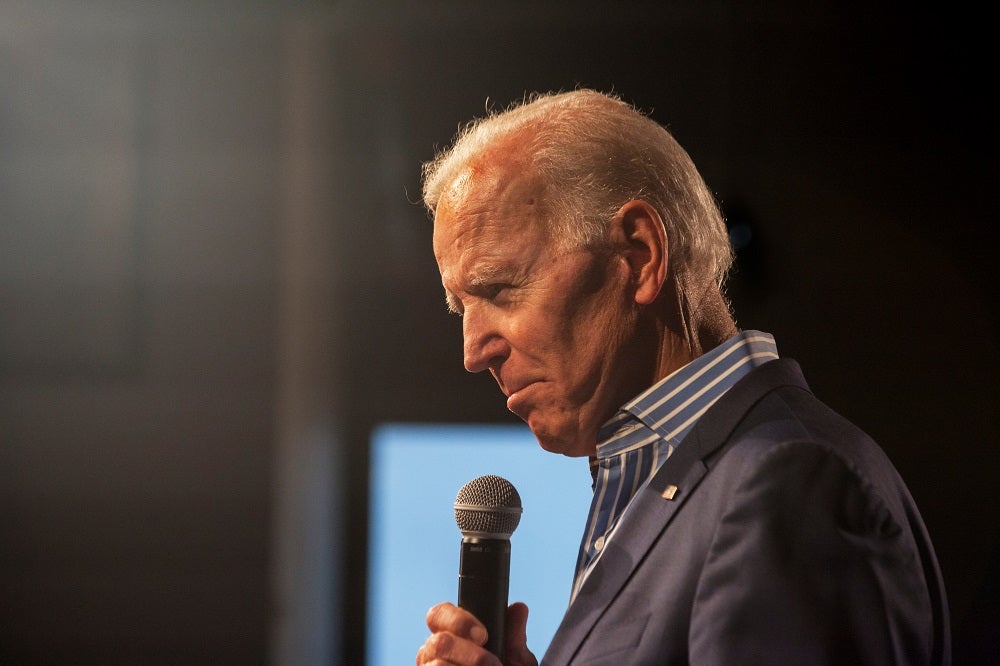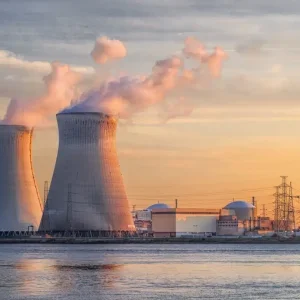
President Joe Biden continues to reshape the US oil and gas industry during his early days in office, moving to introduce a temporary ban on new lease sales across federal lands and waters as part of a wider-ranging sweep of climate actions.
The executive order to suspend new auctions marks the first step towards fulfilling a contentious campaign promise to end oil and gas extraction on territory controlled by the federal government.
The US Interior Department has been directed to “pause new oil and natural gas leases on public lands or in offshore waters, pending completion of a comprehensive review and reconsideration of federal oil and gas permitting and leasing practices”.
Industry groups have criticised the suspension, saying an outright ban would damage jobs, revenues and energy independence. But climate campaigners welcomed the decision to prioritise renewable energy sources over fossil fuels.
Gina McCarthy, the US national climate advisor, said the leasing decision seeks to “make sure that we take a little pause and review the entire strategy of [how] we’re looking at public lands”.
“So it will include looking at what new leases ought to be approved and sold,” she added, and “how we manage public lands — consistent with climate, but also consistent with the marriage between climate and really growing jobs of the future.”
Government agencies will be further tasked with identifying “opportunities for federal funding to spur innovation, commercialisation, and deployment of clean energy technologies and infrastructure”, according to a White House statement.
In an additional order likely to generate controversy within the industry, President Biden also directs federal agencies to “take steps to ensure that, to the extent consistent with applicable law, federal funding is not directly subsidising fossil fuels”.
“I don’t think the federal government should give handouts to Big Oil to the tune of $40bn in fossil fuel subsidies,” Biden said ahead of signing the orders.
Furthermore, the Interior Department is instructed to “consider whether to adjust royalties associated with coal, oil, and gas resources extracted from public lands and offshore waters, or take other appropriate action, to account for corresponding climate costs”.
Industry groups hit out at Biden, claiming ban on oil and gas lease sales will make US more reliant on foreign imports
The announcements follow on from several climate-focused directives made last week on inauguration day, which underscored the new president’s resolve to act on climate change and deliver a transformation of America’s energy system.
These included rejoining the Paris Agreement, revoking a permit for the Keystone XL pipeline, placing a temporary moratorium on lease sales in Alaska’s Arctic National Wildlife Refuge (ANWR), and reversing regulatory rollbacks on emissions standards introduced by his predecessor.
Federal lands and waters have been identified by President Biden as areas where the footprint of US fossil fuel activity can be reduced as he targets deep energy reforms to secure emissions reduction and prioritise low-carbon, renewable industries.
Bloomberg reports that 22% of US crude oil production and 12% of natural gas production came from federal lands and waters in 2019, citing US Energy Information Administration figures.
The American Petroleum Institute (API) claims an outright ban on new oil and gas lease sales by the Biden team would in fact slow the transition to cleaner fuels.
“With a stroke of a pen, the administration is shifting America’s bright energy future into reverse and setting us on a path toward greater reliance on foreign energy produced with lower environmental standards,” said API chief executive Mike Sommers.
“Limiting domestic energy production is nothing more than an ‘import more oil’ policy that runs counter to our shared goal of emissions reductions and will make it harder for local communities to recover from the pandemic.”
Anne Bradbury, chief executive of the trade group American Exploration & Production Council, added: “Penalising the oil and gas industry kills good-paying American jobs, hurts our already struggling economy, makes our country more reliant on foreign energy sources, and impacts those who rely on affordable and reliable energy.”
But Josh Axelrod, senior advocate at the National Resources Defense Council (NRDC) welcomed the leasing review. He said: “This moratorium gives the country a chance to modernise the way we deploy our natural resources for developing energy – and to speed up a just and equitable transition to good-paying clean energy jobs of the future.”
Sierra Club’s director of public lands protection Athan Manuel added: “Pausing new oil and gas leasing will improve the health of our communities, our climate and our wild places. Public lands can, and must, be part of the climate solution.
“They must also be a part of a just recovery by reinvesting in communities, tapping fossil fuel workers to clean up past pollution, and bringing communities together to diversify economies in ways that allow everyone to benefit.”
Biden administration accelerates planning for ‘irreversible path’ to net zero
The Biden administration has placed environmental issues high on its agenda, and the latest round of presidential directives confirm that climate change will form “an essential element of US foreign policy and national security”.
In addition to the interventions in oil and gas leasing, federal government agencies are being directed to procure fleets of zero-emission vehicles – purchased from domestic suppliers – and facilitate “a carbon pollution-free electricity sector no later than 2035”.
The Interior Department is set a goal of “doubling offshore wind by 2030”, while new environmental protection targets aim to conserve 30% of the country’s lands and oceans by 2030.
These initiatives, along with many others issued by the US president yesterday (27 January), underscore the new administration’s desire for a “government-wide approach” to tackling climate change, which combines the “full capacity of the federal government” and every sector of the economy.
All branches of government, both foreign and domestic, are tasked with building climate considerations into their activities, planning and risk assessments – and a National Climate Task Force has been established consisting of department leaders that will administer these new policies.
The director of national intelligence was also asked to prepare an assessment of the national and economic security impacts of climate change.
“These executive orders follow through on President Biden’s promise to take aggressive action to tackle climate change,” the White House said in a statement previewing the actions, and will “put the US on an irreversible path to a net-zero economy by 2050.”






